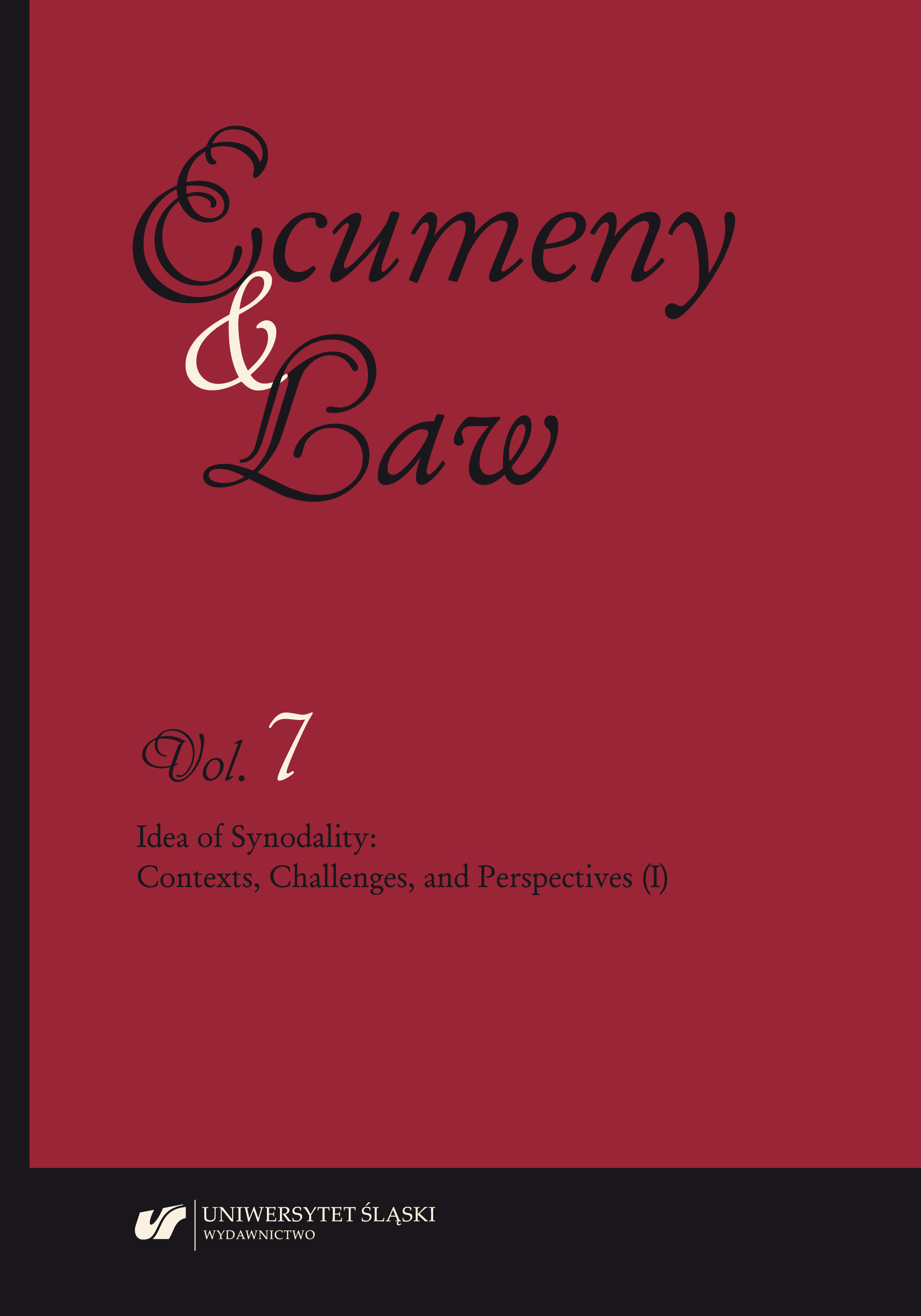The Regime of the Synodality in the Eastern Church of the First Millennium and Its Canonical Basis
The Regime of the Synodality in the Eastern Church of the First Millennium and Its Canonical Basis
Author(s): Nicolae V. DuraSubject(s): Law, Constitution, Jurisprudence, Theology and Religion
Published by: Wydawnictwo Uniwersytetu Śląskiego
Keywords: Synodality; synodality regime; canonical bases
Summary/Abstract: The synodal form of organisation — sought and established for His Church by Her Founder, that is, by Our Lord Jesus Christ, and affirmed by His Apostles — was also expressly reaffirmed by the canonical legislation of the Eastern Church of the first millennium. By adapting the form of administrative-territorial organisation of the Church to that of the Roman State — sanctioned by the canons of the Ecumenical Synods (cf. can. 4, 6 Sin. I Ec.; 2, 6 Sin. II Ec.; 9, 17, 28 Sin. IV Ec.; 36 Sin. VI Ec.) — in the life of the Eastern Church several types of synods appeared, starting with the eparchial (metropolitan) synod of a local Church and ending with the patriarchal synod, both still present in the autocephalous Churches of Eastern Orthodoxy.
Journal: Ecumeny and Law
- Issue Year: 2019
- Issue No: 7
- Page Range: 29-52
- Page Count: 24
- Language: English

